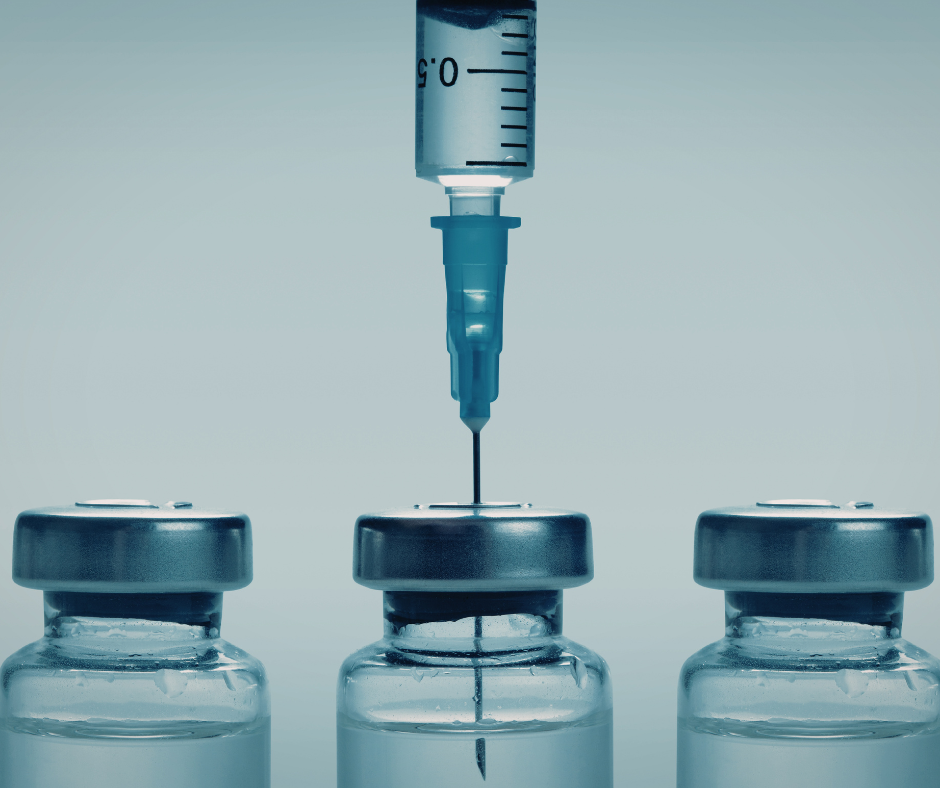In today’s fast-paced world, many individuals are seeking ways to enhance their energy, vitality, and overall well-being. For some, the allure of testosterone supplements as a solution to these concerns is undeniable.
However, before you consider incorporating testosterone supplements into your routine, it’s crucial to understand the potential side effects and why it’s essential to take such supplements under a doctor’s supervision.
In this article, we’ll explore what testosterone supplements are, delve into the importance of medical oversight, examine common testosterone supplement side effects, and ultimately answer the question: Are testosterone supplements safe?
What are Testosterone Supplements?
Testosterone supplements, often marketed as “test boosters” or “testosterone pills,” are formulations designed to increase the levels of testosterone in the body.
Testosterone is a hormone primarily produced in the testes (and to a lesser extent in the adrenal glands) and is responsible for various functions in the male body, such as muscle growth, bone density, and the development of male sexual characteristics.
While it is predominantly a male hormone, women also produce small amounts of testosterone in their ovaries.
These supplements typically contain a blend of natural ingredients, vitamins, and minerals that are believed to stimulate the body’s testosterone production. Common ingredients found in testosterone supplements include fenugreek, D-aspartic acid, zinc, vitamin D, and tribulus terrestris.
Why You Should Take Testosterone Under a Doctor’s Supervision
Before diving into the potential side effects of testosterone supplements, it’s essential to emphasize the importance of medical oversight when considering testosterone supplementation.
Here are some critical reasons why you should consult a healthcare professional before taking testosterone supplements:
Individualized assessment
Every individual’s hormonal balance is unique. What may work well for one person could be entirely inappropriate for another.
A doctor can assess your specific hormonal levels and overall health to determine whether testosterone supplementation is necessary or advisable.
Identifying underlying issues
Low testosterone levels can be a symptom of an underlying medical condition. Instead of merely addressing the symptoms with supplements, a healthcare provider can investigate and address the root cause, which may be a more effective and safe approach.
Monitoring hormone levels
Taking testosterone supplements without medical supervision can lead to imbalances or excesses in hormone levels.
Regular monitoring by a doctor ensures that your hormone levels stay within a healthy range, reducing the risk of complications.
Personalized dosage
A healthcare provider can prescribe the appropriate dosage of testosterone supplements based on your specific needs and health status. This ensures that you’re not taking too much or too little, which can both have adverse effects.
Minimizing risk
Testosterone supplements can interact with other medications and conditions. A doctor’s guidance can help identify potential risks and provide recommendations to minimize them.
Testosterone Side Effects
Now that we understand the importance of medical supervision let’s delve into the potential side effects associated with testosterone supplements. While these supplements promise benefits such as increased muscle mass, improved libido, and enhanced energy levels, they can also come with a range of adverse effects.
It’s essential to be aware of these potential side effects before considering testosterone supplementation.
Cardiovascular risks
One of the most significant concerns with testosterone supplementation is its potential impact on cardiovascular health.
Some studies have suggested that high doses of testosterone may increase the risk of heart problems, including heart attacks and strokes. It’s important to note that this risk is more pronounced in individuals with pre-existing cardiovascular issues.
Mood swings
Testosterone can affect mood and behavior. Some individuals may experience mood swings, irritability, or increased aggression while taking testosterone supplements.
It’s crucial to monitor your emotional well-being when using these products.
Acne and skin issues
Elevated testosterone levels can stimulate oil production in the skin, leading to acne breakouts. If you are prone to acne or have a history of skin issues, this is something to consider when using testosterone supplements.
Sleep disturbances
Testosterone supplements can disrupt sleep patterns, leading to insomnia or other sleep-related issues. Sleep is vital for overall health and well-being, so any disturbances in sleep should be carefully monitored and discussed with a healthcare provider.
Hair loss
For some individuals, increased testosterone levels can accelerate hair loss, particularly in those with a genetic predisposition to male pattern baldness. If you are concerned about hair loss, discuss it with a healthcare professional before starting testosterone supplementation.
Testicular shrinkage
One of the most noticeable side effects of testosterone supplementation is testicular shrinkage. This occurs because the body senses an excess of testosterone and reduces natural production, leading to a decrease in testicle size.
While this may not be a health concern, it is a cosmetic change that some individuals find troubling.
Hormonal imbalance
Taking testosterone supplements without medical oversight can lead to hormonal imbalances, including elevated estrogen levels. This can result in unwanted side effects such as breast tissue enlargement (gynecomastia) in men.
Liver strain
Some testosterone supplements contain ingredients that can put additional strain on the liver. If you have a history of liver problems or are taking medications that affect the liver, it’s crucial to consult a healthcare provider before using testosterone supplements.
Are Testosterone Supplements Safe?
The question of whether testosterone supplements are safe is a complex one. The safety of these supplements depends on various factors, including individual health, dosage, duration of use, and the quality of the product being consumed. Here are some key considerations:
Quality and regulation
The dietary supplement industry is not as tightly regulated as the pharmaceutical industry. This means that the quality and purity of testosterone supplements can vary widely between brands.
It’s essential to choose a reputable brand and product, preferably one that has been independently tested for quality.
Dosage and duration
The safety of testosterone supplementation depends on the dosage and how long it is used. High doses or prolonged use can increase the risk of side effects. A healthcare provider can help determine the appropriate dosage and duration based on your individual needs.
Pre-existing health conditions
Individuals with certain pre-existing health conditions, such as cardiovascular issues or liver problems, may be at a higher risk of experiencing adverse effects from testosterone supplements. It’s crucial to disclose your medical history to a healthcare provider before starting supplementation.
Alternatives to testosterone supplements
Before turning to testosterone supplements, consider other lifestyle changes that can naturally boost testosterone levels. These include regular exercise, a healthy diet, stress management, and adequate sleep.
Lifestyle modifications may offer a safer and more sustainable way to improve your well-being.
Consultation with a healthcare provider
Ultimately, the safest approach to testosterone supplementation is to consult with a healthcare provider. They can assess your health, discuss your goals, and provide guidance on whether testosterone supplementation is the right choice for you. If it is, they can monitor your progress and adjust the treatment plan as needed to minimize the risk of side effects.
Final Thoughts
Testosterone supplements may offer benefits for some individuals, such as increased energy, muscle mass, and libido. However, it’s essential to approach these supplements with caution and under the guidance of a healthcare professional.
The potential side effects of testosterone supplements, including cardiovascular risks, mood swings, and hormonal imbalances, should not be taken lightly. Safety should always be a top priority when considering any form of supplementation, and medical supervision is crucial to ensure that the benefits outweigh the risks.
Ultimately, the decision to use testosterone supplements should be an informed one, made in consultation with a healthcare provider who can assess your unique needs and monitor your progress to help you achieve your health and wellness goals safely. For expert advice, visit the Evolve Telemedicine website or call (800) 407-4117 to schedule an appointment.






